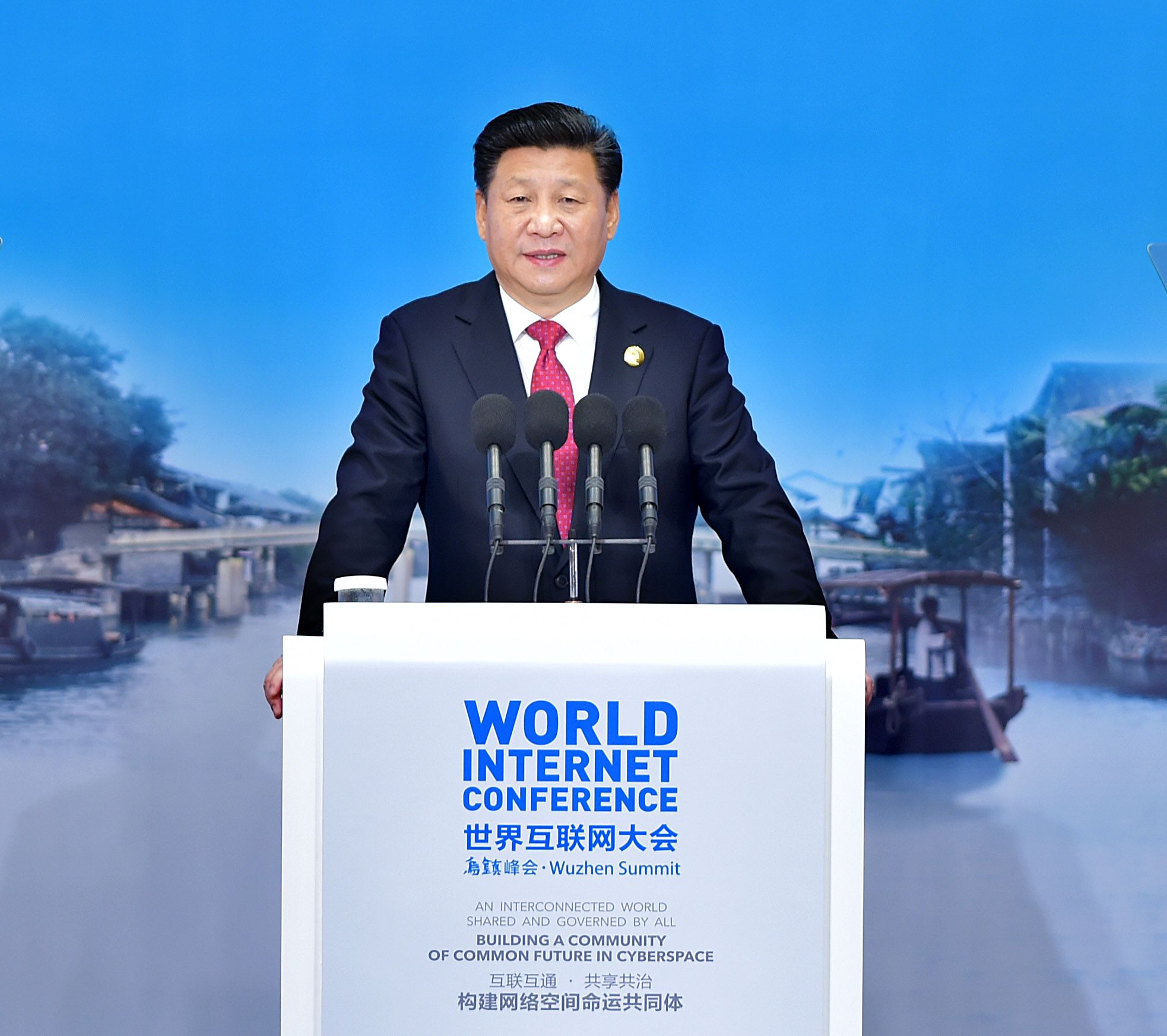Scholars: Developing nations deserve bigger say in cyberspace governance

Chinese President Xi Jinping delivers a keynote speech at the opening ceremony of the second World Internet Conference in Wuzhen Town, east China's Zhejiang Province, on Dec. 16. Xi called for governments to cooperate in regulating cyberspace use and build a community of common future in cyberspace.
From Dec. 16 to 18, the second World Internet Conference was held in the water town of Wuzhen, Zhejiang Province, where more than 2,000 delegates from more than 120 countries and regions gathered to discuss global Internet governance.
President Xi Jinping delivered a keynote speech at the opening ceremony. He said global Internet governance reform needs to be based on a principle of Internet sovereignty, and the international community should make cyberspace a peaceful, secure, open and cooperative place.
Xi’s speech comprehensively explained the Chinese outlook on cyberspace and showed an image of China as an active, responsible player in global Internet governance, scholars said.
Internet sovereignty
Elaborating on the principles of reform as it pertains to Internet governance, Xi said the international community should respect the Internet sovereignty of individual countries above all.
Shen Yi, an associate professor from the School of International Relations and Public Affairs at Fudan University, said it is incorrect to assert that China emphasizes Internet sovereignty, while Western countries do not.
Developed countries, such as the United States, have not relinquished their own Internet sovereignty, he said. “Instead, they prevent other countries from participating in cyberspace based on sovereign equality in an attempt to expand the presence of their own sovereignty in the global network with the advantages of Internet technologies.”
Shen said the first connotation of Internet sovereignty is the supreme right of jurisdiction over domestic network governance. That is, individual countries have the right to choose their own Internet development path and governance policies. “Network governance based on the principle of Internet sovereignty is the trend of world development,” Shen said.
Its other connotation is sovereign equality, Shen said. This means that all countries take part in cyberspace governance on an equal basis, he said, adding that the technology gap cannot affect the rights and status of others.
Shared future
Xi urged countries to jointly build a community of shared future in cyberspace by enhancing communication, strengthening cooperation and expanding common ground.
The key to building such a community is to establish a fair and just Internet governance system. Though the United States has great influence on the global Internet landscape and governance policies, its legitimacy as the manager of the world network, in particular its dominance in the distribution of top-level domains, is increasingly being challenged by the international community, said Wang Sixin, a law professor at Communication University of China.
All actors, including governments, international organizations, Internet companies, technological communities, non-governmental institutions and citizens, should take part in global cyberspace governance, said Lang Ping, an associate research fellow of the Institute of World Economics and Politics at the Chinese Academy of Social Sciences.
There were only 200 million Internet users around the world in 1998, most of whom lived in North America and Europe. As 2015 draws to a close, the number has reached 3.2 billion, accounting for nearly half of the world’s population, and almost two-thirds are living in developing countries, Lang said. “In this context, it is essential to raise the voice of developing countries so that global network governance can be more fair and just.”
Economic dividends
Moreover, Xi proposed to promote innovation in Internet economy to achieve common prosperity.
In addition to creating new economic growth points, the Internet has also changed the production and operation of traditional industries, and has greatly improved efficiency, Lang said. The contributions of the Internet economy to GDP growth mainly include the increase in investment and trade as well as benefits in terms of employment, education and health care, she said. “The Internet not only provides an impetus for economic and social development but also improves environmental sustainability.”
At present, the world is undergoing ups and downs in the process of economic recovery, and the innovation of Internet technology will not just benefit China. The international community can also share in the dividends. Lang said there is still a huge digital gap between developing and developed countries. Cooperation in the construction of information infrastructure needs to be strengthened in developing countries, she suggested, and we should set up specific funds, lower the threshold for technology transfer of developed countries and offer assistance to developing countries in order to fully tap the potential of the Internet economy.
Mao Li is a reporter at the Chinese Social Sciences Today.

 PRINT
PRINT CLOSE
CLOSE